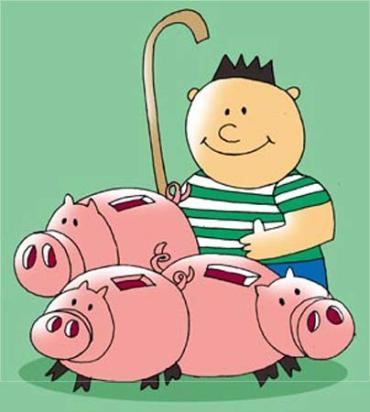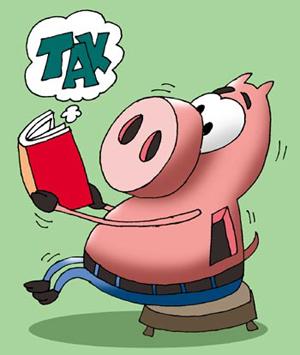 | « Back to article | Print this article |
How to make money after retirement
Home owners can go for reverse mortgage on their homes to make some money after they retire.
Retirement is an important phase in the life of an individual. With the life expectancy rising, an individual is expected to spend nearly one-fourth of his/her life span in retirement, and that too with reduced physical abilities and increased possibility of medical contingencies. Thus it is very pertinent that one plans for this phase of life during the working years when the earning potential is high.
According to the 1991 census reports, India has an estimated 314 million workers, of which a mere 11 per cent are covered by the formal pension system. Hence for the majority of population, personal savings are their only source of retirement income.
Senior Citizens are an increasing component of the Indian society and dependency on children in old age can no longer be taken for granted. While on the one hand, there is significant increase in longevity and decrease in mortality, on the other hand cost of good health care facilities is rising and there is little social security. Senior Citizens need a regular cash flow stream for supplementing pension/other income and addressing their financial needs. The increase in residential house prices has created considerable wealth in the form of 'Home Equity' which has been low on liquidity traditionally.
Reverse Mortgage is a product that allows senior citizens to avail themselves of funds by mortgaging their residential property. The scheme is similar to a housing loan except that in a home loan the borrower pays a fixed EMI to the lending institution, while in a reverse mortgage the lender pays the borrower a fixed sum of money on a periodic basis, the total payment being equal to the value of the property and the interest on the loaned amount. After the death of the borrower and the borrower's spouse or end of the term of the loan, the housing company either sells the property to recover the amount paid out along with interest at a rate similar to interest on housing loans or the heir pays the total amount availed from the housing company and retains the property. For most Senior Citizens, the house is generally the largest component of their wealth. Conceptually, Reverse Mortgage seeks to monetise the house as an asset and specifically the owner's equity in the house.
India is a young country, the average age of its citizens being about 26. Moreover, its population is expected to grow at 1.6 per cent annually. The proportion of the working-age population will rise for a long time and remain high for a longer time. Indian economy is estimated to continue to grow at a good rate, at least until 2040. The demand for housing, as a result, will remain high.
According to the Business Intelligence Unit (BIU), housing accounts for more than 75 per cent of savings. Households are hence expected to create more housing assets in the future. Reverse mortgage will also provide additional incentive to accelerate future investments in housing assets.
Although it is preferable to start planning for retirement at the earlier stages of life when retirement is still a distant goal and investing small sum of money every month will also ensure that the required corpus is accumulated at the time of retirement, but even if one fails to do so and ensures that one is able to purchase a house during the working life, then the retirement needs may be taken care of by reverse mortgage. However if the house is to be passed to the next generation as estate then one needs to do proper retirement planning in consultation with a qualified expert like a Certified Financial Planner (CFP) professional.
Buying a house during working life will also give an individual benefit under section 24 of the income tax act, where the interest on the housing loan is exempt to the limit of Rs 150,000 for a self occupied property, while there is no limit if the property is rented out.
The writer is working with Financial Planning Standards Board India (FPSB India) in the capacity of Vice Chairman and Chief Executive Officer. The views expressed here are personal, and do not necessarily represent that of the organization. FPSB India is the sole marks licensing authority for the CFP marks in India, through agreement with US-based FPSB Ltd.
How to make money after retirement
The contract converts the capital value of a home into an annuity over the homeowner's lifetime. The loan is not an income so is tax free. The amount loaned would depend on the estimated value of the property (minus the interest cost), its condition and life. The borrower is given up to 3 business days to exercise his "right of recession" i.e. the right to cancel his transaction. If the loan amount has been disbursed, the entire loan amount will need to be repaid by the Senior Citizen borrower within this three day period. However, interest for the period may be waived at the discretion of the lender. The legal heirs have the option to re-possess the property after the demise of both the borrower and the spouse on clearance of all debts. The borrower or the heir can even prepay the loan amount. If the borrower outlives the tenure of the loan, he will not be asked to move out of the house. Although payments made to him will stop after the tenure, the interest will keep accumulating till the accounts are finally settled. It has been suggested that a certain portion from the payments be parked in bank fixed deposits to fund the years that one may outlive the loan.
There are some conditions which have to be satisfied before one can avail the reverse mortgage scheme on the existing residential property. The guidelines are set up by the National Housing Bank (NHB) and the major ones are mentioned below.
The borrowers should be senior citizens above 60 years of age.
In case of married couples applying as joint borrowers, at least one of them should be above 60 years of age with other being not less than 55 years old.
The borrower should be the owner of a self- acquired, self occupied residential property (house or flat) located in India, with clear title indicating the prospective borrower's ownership of the property.
The residual life of the property should be at least 20 years.
The prospective borrowers should use that residential property as permanent primary residence. Permanent primary residence refers to the self acquired, self occupied residential property where a person spends majority of his time.
How to make money after retirement
Taxation
A new clause (xvi) in section 47 of the Income-tax Act, 1961 has been inserted to provide that any transfer of a capital asset in a transaction of reverse mortgage under a scheme made and notified by the Central Government shall not be regarded as a transfer. Section 10 of the Income tax Act, 1961 has been amended to provide that any amount received by an individual as a loan, either in lump-sum or in installment, in a transaction of reverse mortgage referred to in clause (xvi) of Section 47 of the Income-tax act shall not be included in total income.
In conclusion, it may be said that reverse mortgage looks like an innovative option for the elderly which may free them from financial worry of sustenance during retirement in addition to comfortable housing. At a macro level implementation of reverse mortgage scheme could reduce the burden on the Government and employers who are paying pensions, whether in the public or in the private sector. It spurs economic activity by monetizing the fixed investments.


